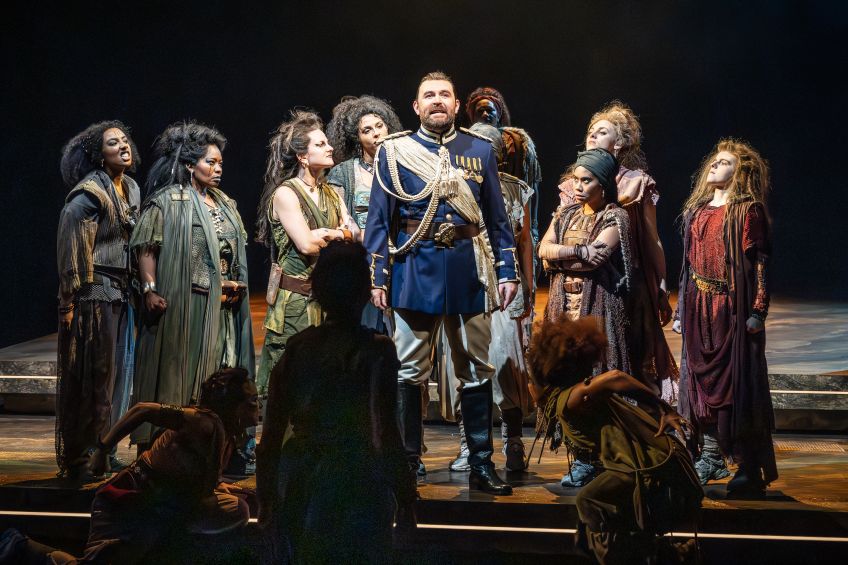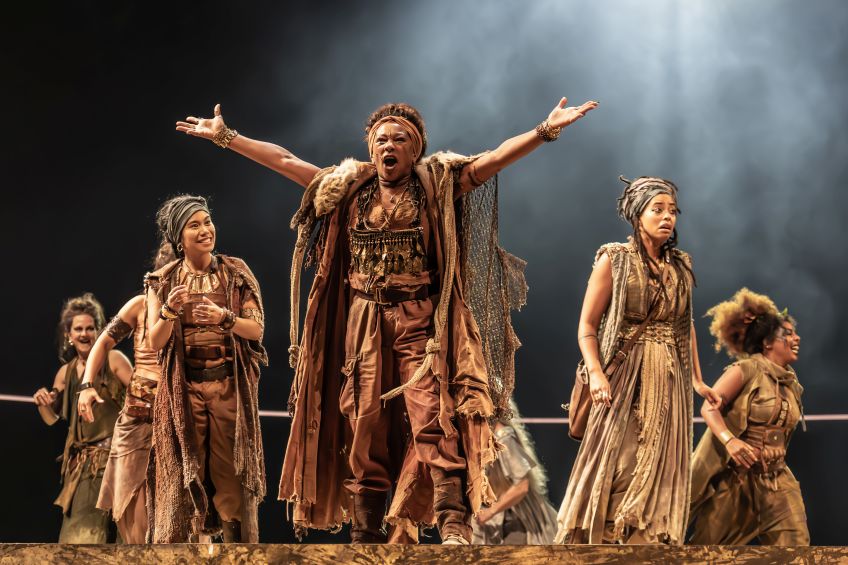The Olivier Theatre is perfect for a Greek tragedy, modelled as it is on the Ancient Theatre of Epidaurus.
Indhu Rubasingham is the new artistic director of the National Theatre and sadly her inaugural production is a modern take by Nima Teleghan on Euripides’ Bacchae rather than the real thing. The production is aimed at young audiences and will tour schools, pandering to them.
Bacchae, the last of the great Greek tragedies was written by Euripides when he was over 70 and first produced in 405 BC. The play, one of the great horror stories, is also a psychological battle between two characters representing restraint and passion. Barbarism triumphs over civilisation.
King Pentheus of Thebes, foolhardy in his arrogance and blasphemy, dares not only to question the divine paternity of Dionysos but he also attempts to stamp out his cult, a popular mixture of religious hysteria and erotic orgies.
Dionysos arrives on earth in human form to exact a terrible revenge. He persuades the king to go to the mountains, disguised as a woman, to spy on the frenzied activities of his mother and her companions. They fail to recognise him and tear him to pieces. Argave, cradling his head, horrifyingly, thinks she has killed a lion.

Rubasingham’s production opens with a huge bloody horse’s head which hangs high above the stage. The image immediately raises great expectations which are immediately diminished once the chorus start speaking. Nima Teleghani’s dumbing-down script panders to school kids and goes for comedy far too much. He uses the F-word incessantly and it grates.
The spectacular production on a revolving stage offers rap, dance and bags of energy from an all-women chorus, headed by Clare Perkins, and everybody screeching away, fiercely commenting on the action.
It was a great relief when two male actors, strong on diction, finally came on stage James McArdle is Pentheus. Ukwell Roach is a camp Dionysos. The best comic scene is Dionysos persuading Pentheus to get into drag and Pentheus fancying the idea.
Audiences, hoping to see the tragedy Euripides actually wrote, are going to be particularly irritated. I do hope this production is not an omen for the National Theatre’s future.
To learn more about Robert Tanitch and his reviews, click here to go to his website. 




